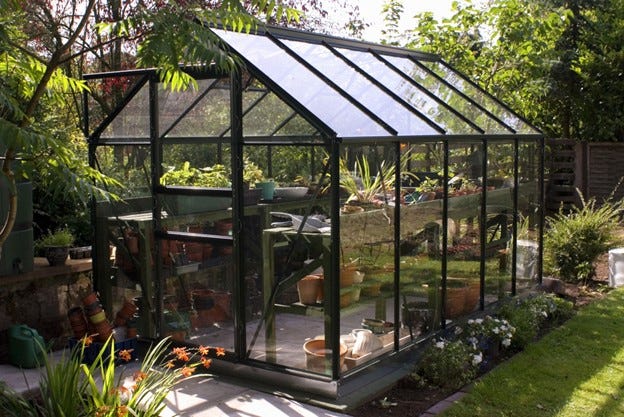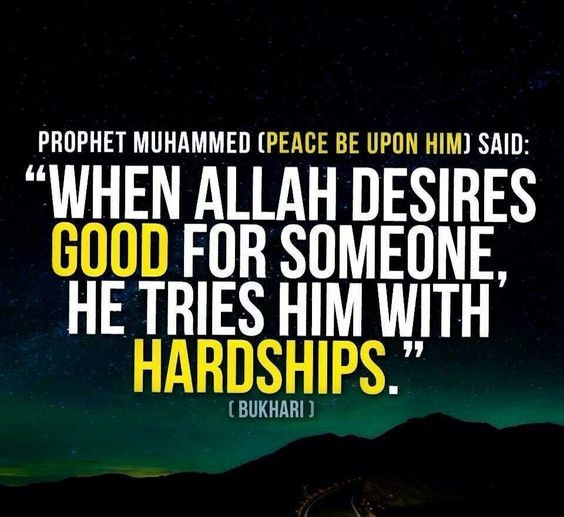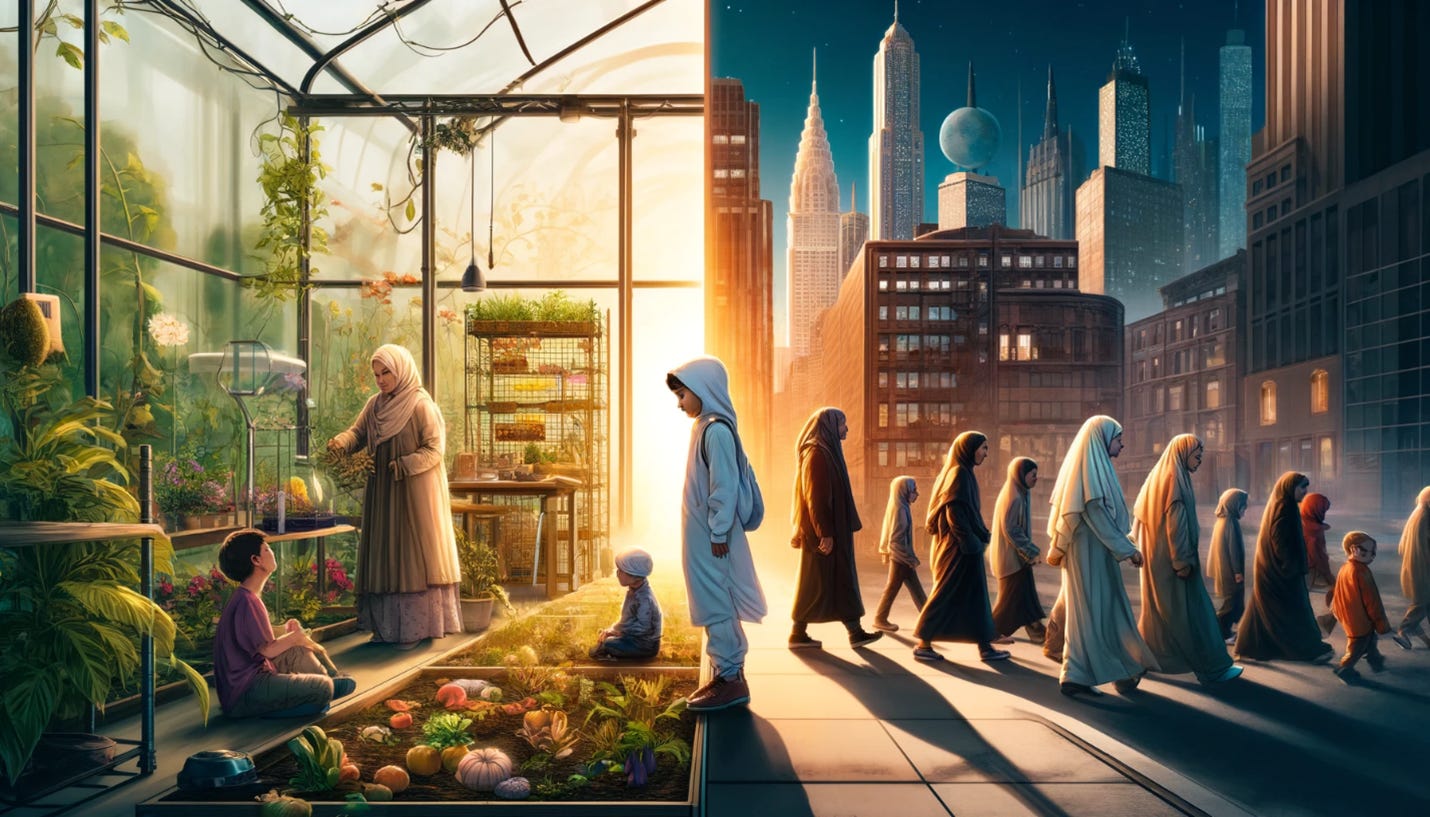The Greenhouse Effect of the Muslim Bubble…and What We Can Do About It
How insular parenting is stunting the growth of Muslim youth in the west
The problem with bubbles is that they eventually burst.
When this happens on playgrounds, the impact is minimal, but when bubbles burst in the housing or stock markets, the repercussions can be life-altering.
Our planet is not so far off from being a bubble itself.
The greenhouse effect describes how heat radiated from the Earth’s surface is trapped by greenhouse gases, thereby warming the planet.
The greenhouse effect is essential to life on Earth, yet excessive greenhouse gas emissions from burning fossil fuels are causing the temperature on earth to rise dramatically.
While melting polar ice caps and catastrophic climate change are not quite the same as a bubble bursting, they represent a similar threshold of irreversibility that, once crossed, could lead to drastic changes in the global environment.
Bubbles and greenhouses are also apt metaphors to describe a common strategy of raising Muslim children in the west.
When I taught at an Islamic school, many of the graduating seniors were “lifers,” having attended the school from pre-K to 12th grade. Their weekends consisted of hanging out with Muslim friends at Muslim events in Muslim spaces.
I just returned from a week-long speaking tour in Dallas in Houston.
MashAllah, the Muslim infrastructure there is truly impressive—state-of-the art masjids, 1000+ student Islamic schools with beautiful gym facilities, thoughtfully designed Muslim neighborhoods surrounding the masjids, infinite halal food options.
Despite the highly developed ecosystem—or perhaps because of it—many of the young Muslims I met there seemed stuck inside of the Muslim bubble, seldom engaging with the wider world. Few students had applied for internships or had gotten any real-world work experience, and most had limited social interactions outside of their immediate community.
This insular approach, akin to a greenhouse, nurtures growth in a safe, structured environment. However, just as with any protective bubble, there is a risk of a sudden burst. I vividly remember a Muslim college student being rushed to the emergency room to have his stomach pumped due to alcohol poisoning on the first weekend of college.
The “greenhouse effect” of the Muslim bubble describes the phenomenon where Muslim parents create a controlled, insulated environment to nurture their children’s development while limiting their exposure to external influences in order to ensure religious and cultural continuity.
Of course, many children raised outside of the Muslim bubble, are suffering even more dire consequences—loss of faith, drug use, teenage pregnancies.
This begs the question— how can we strike a balance between protecting our youth within a supportive Muslim community and ensuring they are equipped to engage confidently and competently with the broader world?
In short, how can we leverage the positive impact of the greenhouse effect without creating a bubble in danger of bursting.
1) Benefits of the Greenhouse Effect
There is a reason that farmers use greenhouses. By creating a controlled environment where the temperature and humidity can be monitored, the growing season can be extended, and pests can be kept at bay, delicate saplings can be nurtured when they are at their most vulnerable.
Similarly, there are significant benefits to raising our children within a greenhouse-like “bubble” when they are young.
The solidarity Muslim children feel when growing up among like-minded peers helps them reinforce spiritual practices without feeling marginalized. Early exposure to Islamic rituals and mindsets helps cement their identities when they are most impressionable.
Just as important, Muslim “greenhouses” protect children from negative influences such as drug & alcohol use, inappropriate relationships, and societal pressures toward materialism that prioritize fleeting pleasures over long-term spiritual and ethical goals.
2) Dangers of the Muslim Bubble
Just as deforestation and the burning of fossil fuels release excessive greenhouse gases that threaten the health of our climate, similarly an over-reliance on the “Muslim bubble” can have detrimental effects on our children.
Plants raised in greenhouses tend to have a shallow root system and are less hardy than those that grow naturally in the forest.
Children raised exclusively within the Muslim bubble tend to lack resilience and develop an insular worldview. In their desire to protect their children from negative influences, some Muslim parents stunt their growth by never exposing them to real-world challenges.
This overprotection fosters a dependency on constant support and shields them from failure. Children raised within the bubble don’t have to “fight” to maintain their Muslim identity and are at serious risk when they are eventually exposed to the diverse challenges of the real world.
Many Muslim families insist that their children live at home even during college, further eroding an opportunity for them to develop an independent Muslim worldview.
3) Contrast with the immigrant experience
The childhood experiences of children growing up within the Muslim bubble contrast sharply with those of most Muslim immigrant parents.
Many Muslim parents arrived in the west with only $5 in their pockets and a dream about building a new life. With a twinkle in their eyes, they tell their children stories about their early years—cockroach-infested apartments, living on Ramen noodles, working a minimum-wage job late into the night. They look back on these hardships fondly because they were the key to their later success.
Just like trees in a natural growth forest must grow deep roots to find the proper nutrients, these parents developed resilience and a strong work ethic thanks to their early struggles.
By contrast, most Muslim children growing up in the bubble have faced few challenges. They often live in comfortable, well-established communities surrounded by family and community members who share similar values and experiences.
While these children benefit from a sense of security that their parents may not have initially had, this “softer” environment shields them from the harsher realities of life, potentially impacting their ability to handle adversity with the same resilience demonstrated by their parents.
Despite knowing that their time in the “oven” is what baked their bread, many Muslim parents seem to prefer to treat their children as delicate pastries, carefully shielding them from the intense heat of life’s challenges.
4) Islamic Perspective
In Surah Ankabut, Allah asks: “Do the people think that they will be left to say, ‘We believe’ and they will not be tested?” A hadith in Sahih Bukhari states: “When Allah (SWT) desires good for someone, He tries him with hardships.”
While these hardships can come to us whether we are in the Muslim bubble or not, it is instructive that Allah indicates that trials are a major source of growth.
In our efforts to protect our children from fitna, we may paradoxically be making them more susceptible to the virus by not allowing them to strengthen their immune system.
Just as a tree that has been raised in a greenhouse will be toppled by a strong wind, so too can our children be felled by the arrows of Shaytaan if we have never put them in an environment where they learn to build their own shield.
5) So What is the Solution?
I believe that Muslim families should adopt a hybrid approach when raising their children. During their formative K-12 years, there are significant benefits to the protective shell of the Muslim bubble. When they reach the second half of high school, and certainly when they enter college, however, it is essential that our children confront the diverse perspectives and challenges of the “real world.”
“Hardening off,” is a term in gardening that refers to the gradual acclimation of plants raised indoors to the harsher conditions of the outdoors. It consists of progressively increasing the indoor plant’s exposure to sunlight and varied weather conditions before eventually transplanting them in an outdoor garden.
I recommend that Muslim families take a page from the gardener’s handbook—raising our children inside the greenhouse of the Muslim bubble when they are young and vulnerable but then gradually exposing them to outside elements as they become more mature.
At my daughter’s Islamic school, for example, the juniors and seniors take all their “secular” classes on the campuses of local community colleges through the dual enrollment program. By allowing them to have a hybrid experience during their final two years of high school, I believe this program provides an ideal transition from the shelter of the Muslim bubble to the extreme exposure of a college campus.
Many Muslim families, however, insist on having their children live at home during their college years, effectively extending the Muslim bubble well into their 20s. While there may be sound financial reasons for making this decision, whether they are living at home or on campus, it is critical that our children learn independence and build a diverse network.
As our children step into the wider world, the bubble we’ve so carefully constructed around them is stretched thin, threatening to burst under the pressure of new challenges and experiences.
This moment of tension isn’t just inevitable; it’s necessary. It’s our responsibility to ensure that when the bubble does burst—as it must for growth to occur—our children are not left vulnerable but are equipped to thrive in the diversity and adversity of the real world.
And please hit the heart button or leave a comment to let me know what you thought about this week’s newsletter!











I love all the analogies you use here, especially those of children to plants that need strong roots to remain strong and to grow. The desire to protect our children too much or too long is not only present in the Muslim community--it is a deep problem facing American society today in the sense that children aren't allowed to do anything without their parents' help or without failing. I hope Muslim families heed your very wise advice and learn to let go because as hard as it is, it is for the betterment of our children's lives.
I think this was an excellent article and to be sure, I agree with most of its conclusions. Not being a Muslim myself, but having grown up with them, I am very conscious of the protective, supportive environment, in which they raise their families. Our country, however, is increasingly and unfortunately divisive. All the more reason that at high school age, the Muslims should reach out and participate beyond their immediate community into a broader one, most readily over summer vacation. At a local level this might mean a summer sports program or a job, where they interact with the non Muslim community. At a more adventurous level it might involve attending a summer camp or a social program some hundreds of miles away from their family. There are numerous examples of where such experiences prove not only broadening and life changing to the individual, but even on their return to their parents and fellow siblings. Our country is in difficult straits these days, and it is of great importance for all of us to get out of our cocoon and get to know our fellow citizens.